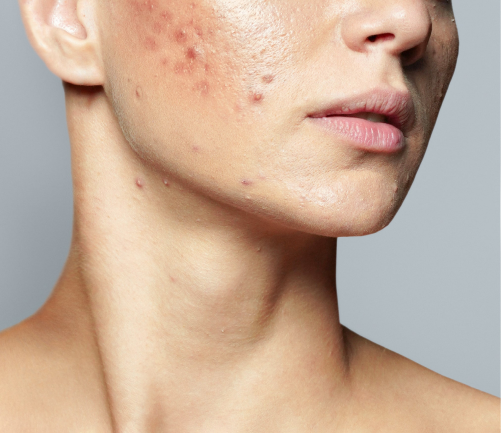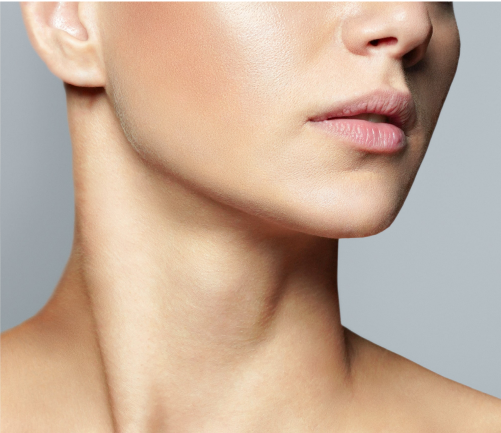Intense Pulsed Light (IPL) treatment offers a versatile solution for various skin issues, from unwanted hair removal to skin rejuvenation. By understanding the applications, considerations, and current trends in IPL treatment, individuals can make informed decisions regarding this popular cosmetic procedure in clinical and aesthetic dermatology.
IPL Treatment is a laser therapy used in aesthetic and clinical dermatology to address various skin concerns. It involves using light energy from an IPL device to target specific skin resurfacing disorder.
IPL treatment is also commonly used for laser hair removal, targeting hair follicles with a pulse of light energy to reduce unwanted hair growth.
Additionally, IPL therapy can address skin issues such as:
Aging skin
Pigmentation
Vascular lesions
IPL therapy addresses it by stimulating collagen production and targeting pigment cells.
The treatment may involve minimal discomfort, often described as a sensation similar to a rubber band snapping against the skin.
To ensure the effectiveness of IPL treatment and minimize potential risks, it's essential to avoid direct sun exposure before and after the procedure and follow any aftercare instructions provided.
IPL treatment offers a versatile solution for individuals seeking to improve skin tone, texture, and appearance without invasive procedures.
Overall, the IPL procedure offers versatile solutions for individuals with dark hair seeking to improve skin concerns with minimal discomfort and downtime.
Intense Pulsed Light (IPL) therapy involves several steps to ensure safety and effectiveness before, during, and after the procedure.
01
Before the treatment, it’s essential to consult with a dermatologist or healthcare provider to determine if IPL therapy is suitable for your skin concerns. To customize the treatment plan, they will assess your skin type, hair color, and medical history.
02
During the IPL treatment, wear protective eyewear to shield your eyes from the intense light pulses. The IPL device will be applied to the treatment area, emitting light pulses that target specific skin conditions.
03
After the treatment, avoiding direct sun and applying sunscreen to protect the treated area is crucial. You may experience temporary redness or swelling, which can be alleviated with cool compresses or anti-inflammatory drugs as directed by your healthcare provider.
Following post-treatment instructions, such as avoiding harsh skincare products and chemical peels, will help promote proper healing and optimal results.
With proper care before, during, and after IPL therapy, you can achieve smoother, clearer skin and address various skin concerns effectively.
Ideal candidates for IPL therapy are individuals with lighter skin tones and darker hair. They will respond best as the contrast between the skin pigment and hair follicles allows for more effective targeting of unwanted hair.
Individuals with mild skin issues such as sun damage or uneven skin tone may benefit from IPL therapy to improve skin surface and appearance. Candidates need to avoid sun exposure and tanning beds before and after IPL treatment to minimize the risk of complications.
Consulting with a healthcare professional specializing in aesthetic and clinical dermatology can help determine if IPL therapy is the correct cosmetic procedure for addressing specific skin concerns and achieving desired results.
After an IPL treatment, there are some tips you can do to help your skin recover and get the best results. Common tips are:
With proper care and patience, you’ll enjoy the benefits of your IPL treatment and see the improvements in your skin surface and tone.


Intense pulsed light (IPL) therapy is a versatile treatment option used in dermatology to address various skin concerns. The intense pulsed light source targeting the pigment in hair follicle while minimizing damage to nearby tissue. This makes the IPL procedure suitable for individuals with dark or light brown skin tones.
During the laser therapy, the IPL device is applied to the surrounding tissue treatment area, where the skin absorbs it, including follicles and blood vessels. This absorption helps remove unwanted hair or reduce the appearance of pigmentation.
With advancements in intense pulsed light technology, IPL procedures are a popular choice for effectively improving skin concerns.
After IPL laser treatments, there are risks and potential complications that individuals should be aware of.
One risk is skin damage, especially for those with darker skin tones, as the intense pulsed light can absorb more in darker skin, leading to burns or changes in skin pigmentation.
Sun exposure following IPL laser treatment can also increase the risk of complications, such as hyperpigmentation or severe sunburn.
Additionally, discomfort during the procedure may be described as feeling like a rubber band snapping against the skin.
In some cases, severe scarring or changes in skin texture may occur, particularly if proper aftercare is not followed.
Individuals experiencing IPL laser treatments should avoid tanning beds and use dark glasses to protect their eyes from the intense light. It's essential to discuss potential risks and complications with a healthcare professional before undergoing IPL laser therapy to ensure the safest and most effective treatment possible.
Existing Intense Pulsed Light therapy trends reflect technological advancements and techniques to enhance effectiveness and patient experience. One prominent trend is the development of IPL devices with improved precision and versatility, allowing for targeted laser treatment of specific skin concerns such as skin pigmentation, age spots, and hair removal.
There's a growing interest in combination therapies, where IPL treatment is combined with other cosmetic procedures like chemical peels or Fraxel laser treatment to achieve comprehensive results for various skin conditions.
Another trend is the expansion of IPL therapy applications beyond traditional dermatological concerns to include cosmetic enhancements such as laser treatments such as skin regeneration and texture improvement.
With ongoing research and innovation in Intense Pulse Light technology, existing trends emphasize personalized treatment approaches to individual needs and preferences in aesthetic and clinical dermatology.
GOOD TO KNOW
Although IPL has a relatively rare side effect and is usually very mild in duration, the main adverse reactions are pain, erythematosus, and other inflammatory conditions. Other reported adverse effects include swelling and tumors.
IPL treatments can remove hair from your face by up to 90% in six to eight weeks and help you maintain your skin’s appearance for many months. IPL makes a good choice for users seeking optimum smoothness.
Studies suggest that IPL surgery targets a specific area of dark skin of the body, which is temporary but does not eliminate or permanently. IPL works with the hair during the growth phase of Anagen.
Intense Pulsed Light (IPL) treatments are generally considered safe when performed by trained professionals. The literature shows that for the last 30 years, IPL procedures have been used to prevent the development of cancers.
Ingeniously straightforward but safe, light energy uses natural properties to get specific results. The device produces multiple light wavelengths in one pulse and selectively absorbs pigments within the hair follicle, allowing them to heat or disabling them.